A 12-year-old girl named Gloria Lockerman is the reason you learned the word “antidisestablishmentarianism” when you were a kid.
Remember how you and your friends would toss it around, touting it as one of the longest words—if not the longest—in the English language?
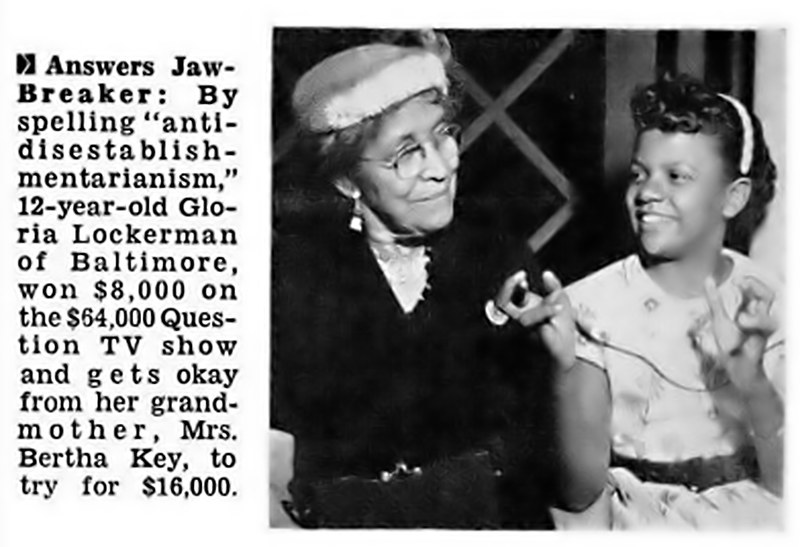
There are of course many longer words, many of them scientific or medical terms, like “pseudopseudohypoparathyroidism,” a thyroid condition that results in physical differences.
And most longer words beyond that are intentionally absurd, like “floccinaucinihilipilification,” a word whose Latin components sort of mean “the perception of something as worthless” thanks to this sentence by 15th-16th century grammarian William Lily:
“Flócci of a lock of wool, náuci of a nut-shell, níhili of nóthing, píli of a hair, ássis of a pénny, hújus of this, terúncii of a fárthing, addúntur are ádded, peculiáritèr pecúliarly or véry próperly vérbis to verbs æstimándi of esteéming.”
Or there’s “hippopotomonstrosesquipedaliophobia,” an intentionally cheeky word using classical elements to make an absurdly long word meaning the fear of long words.
And of course there’s James Joyce’s linguistic monstrosities from Finnegan’s Wake, like this one is meant to put into a word the sound of the thunderclap that accompanied the fall of Adam and Eve: “bababadalgharaghtakamminarronnkonnbronntonnerronntuonnthunntrovarrhounawnskawntoohoohoordenenthurnuk.”
But “antidisestablishmentarianism” is unique for being a long word with a practical, unfanciful and nonscientific use. It dates back to 19th-century England. It’s a reaction to 18th-century disestablishmentarianism, or the movement to have churches remove (disestablish) themselves from the Church of England (the “establishment,” so to speak) and no longer allow it to continue as the default, official Church of the United Kingdom. This was in many cases due to abuses of power and absurdly inflated salaries for religious officials. Slap an “anti-” on “disestablishmentarianism” to describe the position that churches should not be disestablished and should continue to receive government funding and be subject to its influence. Proponents of antidisestablishmentarianism believed that disestablished churches might descend into partisanship and ethnic nationalism.
The word was not well known outside of these historical contexts and the works of the theologians and historians who studied them…
… until 1955.
In an episode of the game show The $64,000 Question, 12-year-old Gloria Lockerman correctly spelled the word “disestablishmentarianism,” winning $8,000—a sizeable chunk of change that today would total just over $92,000. She became a sensation and the word became known to a wide audience.
She would return for The $64,000 Challenge (same show, different nights) and correctly spell the sentence “The belligerent astigmatic anthropologist annihilated innumerable chrysanthemums,” winning another sizeable sum after tying with a boy named Andrew Douglass across several episodes. Watch the duo in action here.
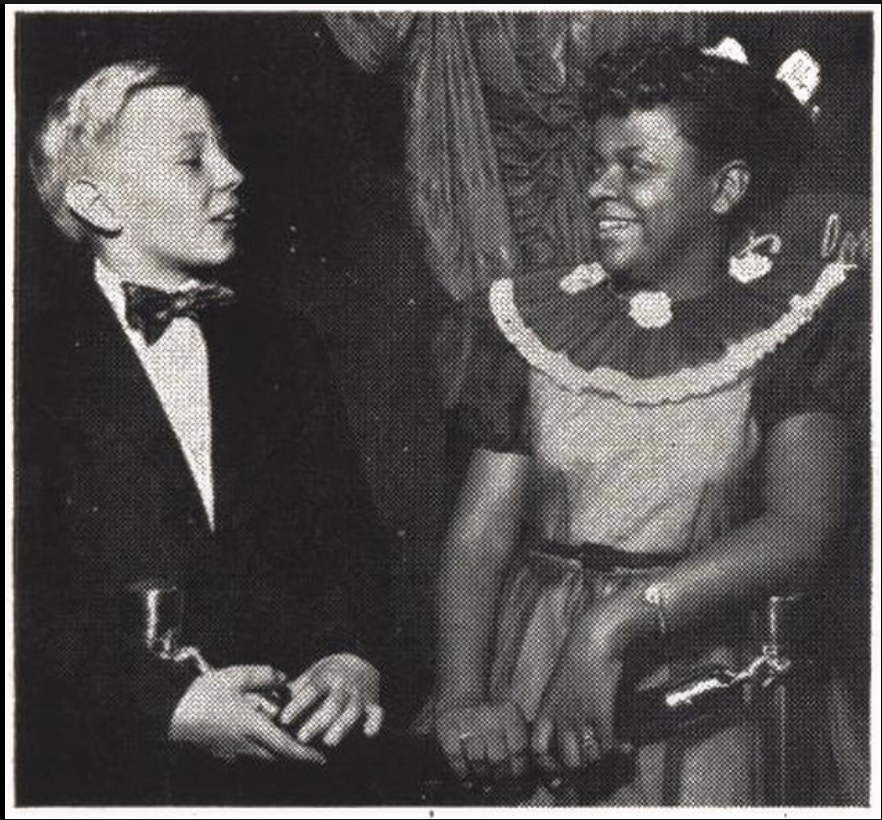
Gloria could have once again returned and gambled her winnings to take a shot at more, but taking her grandmother’s advice, she took the money she had already won and put most of it toward a college fund. In Jet magazine she was quoted saying: “I’d rather be Gloria the undefeated champion than Gloria the girl who lost.”
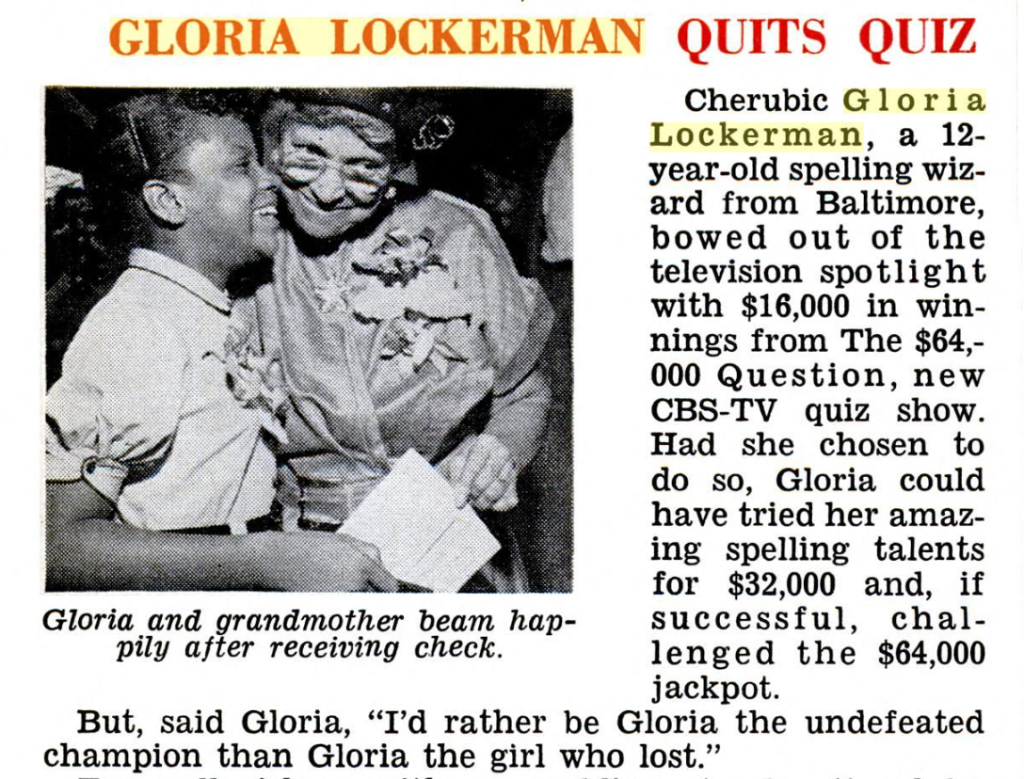
One of the reasons Gloria gained such wide notoriety during her run on the show was because she was Black. Her show of spelling aptitude defied the expectations of many viewers who held biases toward and believed stereotypes about the intelligence of Black people. And indeed, news articles about her from that time definitely emphasized her race.
As a result of her widely viewed performance, everyone came to know the word she had spelled on that first episode, and she herself captivated many hearts and minds: She was honored by the NAACP; she met celebrities; she was invited to parades and festivals; the National Pickle Packers association reportedly sent her 16,000 pickles. She appeared on the popular variety show The Martha Raye Show (which famously drew complaints from bigoted viewers, and is sometimes connected with the show’s cancellation due to the backlash).
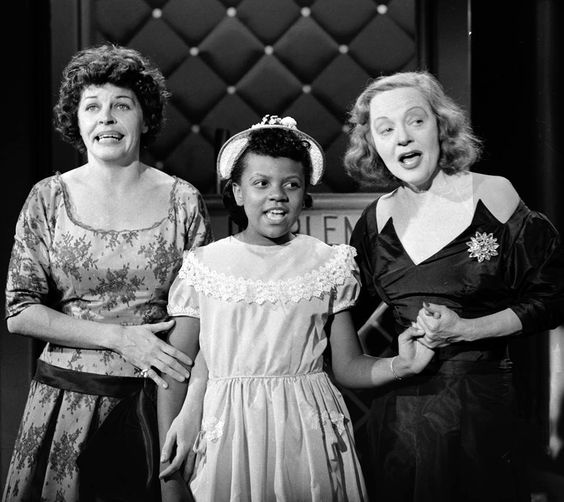
Gloria’s spelling of “antidisestablishmentarianism” was even referenced on The Honeymooners. She was by some outlets dubbed the “spelling queen of the airwaves.”
All of this hype around Gloria resulted in the previously obscure word “antidisestablishmentarianism” becoming one that everyone had heard of, even if they weren’t well versed in Anglican theological politics of the the 19th century. And that’s thanks to Gloria.
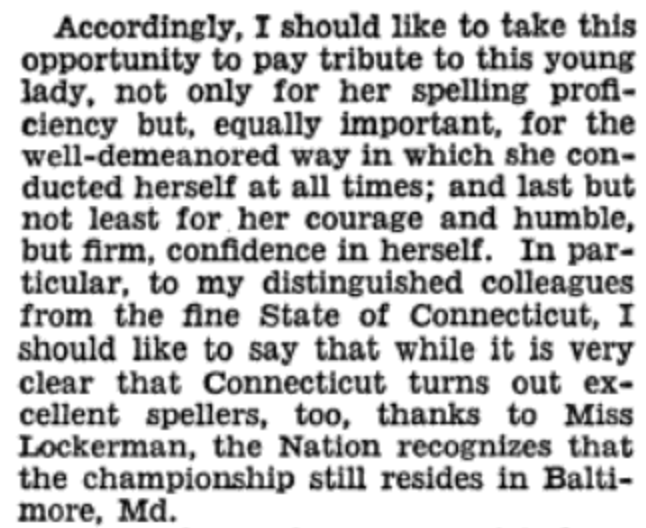
This story does have an asterisk on it: A scandal erupted when an investigation revealed the showrunners were coaching or creating “controlled” situations for contestants. Gloria’s fellow contestant, then-child actress Patty Duke, who would later rocket to fame due to her 1962 portrayal of Helen Keller, admitted to having been coached before the spelling segments of the game show during a Senate inquiry. Patty broke down under pressure—and also revealed that she had been coached to lie to the Senate about it. Gloria was also questioned during the hearings, but her sessions were lower-profile and not as widely reported.
In the aftermath, it was revealed that spelling contestants were given words to practice ahead of time. However, it may have been as many as 600 possible words, so not exactly fish in a barrel. And Northwestern University Professor Dr. Bergen Evans, who wrote most of the questions for the show, said Gloria was a “very good” speller. Articles from the time of her big win also show that the adults in Gloria’s life knew her to be a top-notch speller and extremely smart kid in general even before the game show.
And heck, even with coaching most people would have trouble verbally spelling a sentence such as “The belligerent astigmatic anthropologist annihilated innumerable chrysanthemums” on live TV without at least getting tripped up.
On the show, she was known for her poise and confidence when delivering the answers; her confidence and courage were even called out during the Senate hearings.
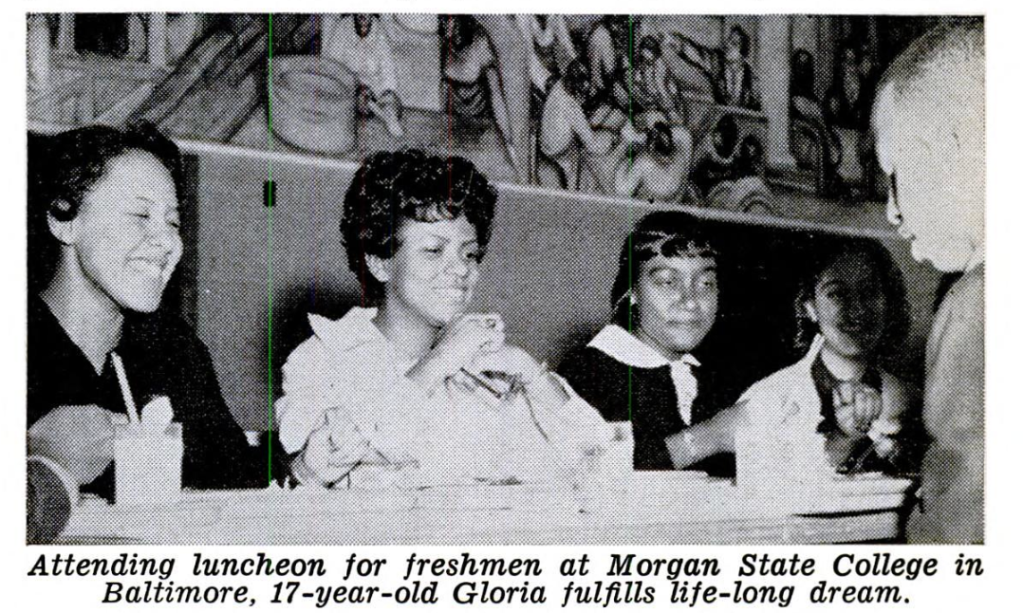
Still, it was a huge scandal that resulted in the cancellation of, not just this show but several other quiz shows with big prizes, and both her fame from the original episode and the fallout from the Senate hearings followed her to Morgan State College, where she enrolled at age 16. News stories said harassment from reporters in the wake of the scandal made her deeply anxious. But in interviews over the next few years, college officials called her “brilliant” in her studies.
After her time at Morgan, she studied at McGill, and the University of Grenoble, and she eventually became a language teacher in Pennsylvania.
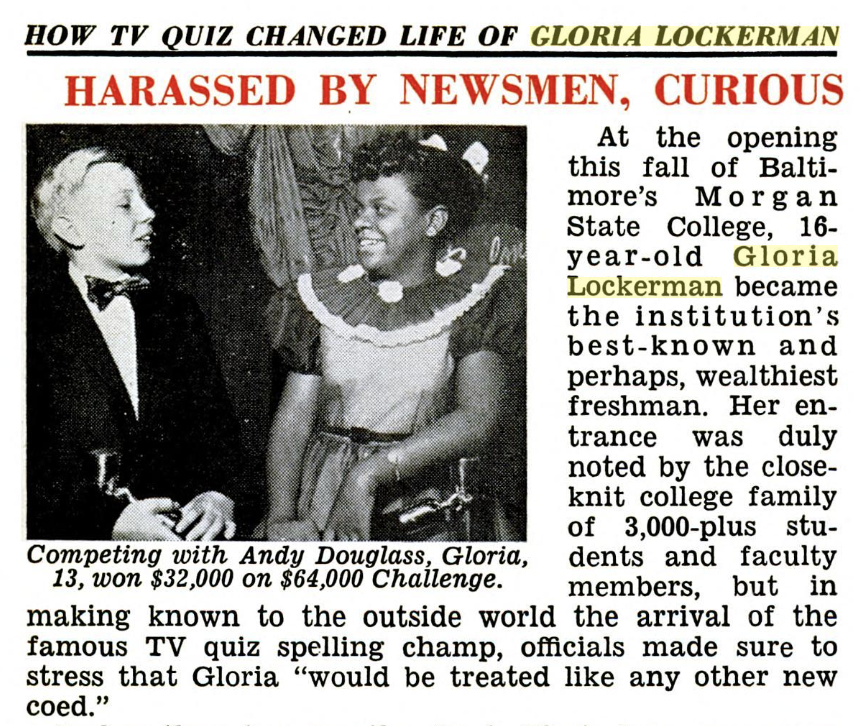
She lived a more private life after that, deservedly so, and she also deserves that we remember her name, not only for her intelligence, but also for the cultural impact she made. Because she wasn’t just an ace speller and iconic word nerd influencer. Much of her fame was due to the way she challenged expectations around race and continued to soar as an academic after her episodes of fame.
And every time an aspiring word nerd uses the term “antidisestablishmentarianism,” they are rightly saluting Gloria’s influence and legacy.

